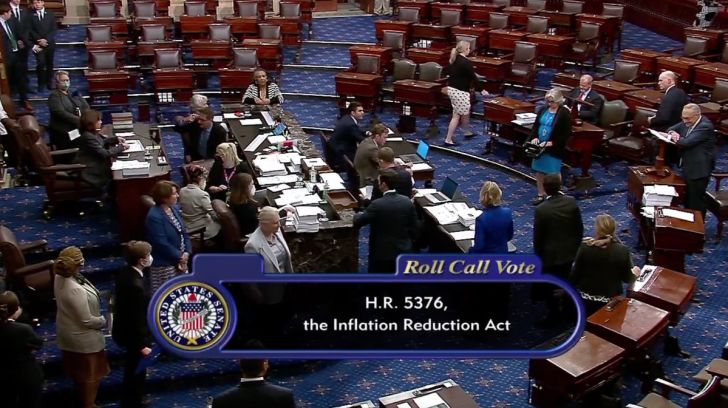Privacy is necessary for an open society in the electronic age. Privacy is not secrecy. A private matter is something one doesn't want the whole world to know, but a secret matter is something one doesn't want anybody to know. Privacy is the power to selectively reveal oneself to the world.
A Cypherpunk’s Manifesto - Eric Hughes - March 9, 1993
Good Morning Everyone,
Freedom of the individual is currently under siege. The war on privacy has been escalating for decades, arguably centuries, and it is heating up massively as we speak. Not only have we seen the the US treasury sanction open source software in the form of tornado cash by placing it on the OFAC sanctions list, the developer of the smart contract software has now been arrested in Amsterdam.
According to the Fiscal & Information Investigation Service (FIOD) of The Netherlands, which is basically the Dutch IRS, the developer was arrested on Wednesday and a statement by the organisation begins as follows:
“On Wednesday 10 August, the FIOD arrested a 29-year-old man in Amsterdam. He is suspected of involvement in concealing criminal financial flows and facilitating money laundering through the mixing of cryptocurrencies through the decentralised Ethereum mixing service Tornado Cash. Multiple arrests are not ruled out. These advanced technologies, such as decentralised organisations that may facilitate money laundering are receiving extra attention from the FIOD. Also in the cryptocurrency domain, the FIOD stands for a safe financial Netherlands and investigates with effect and impact. Today the suspect is brought before the examining judge.”
The idea that a software engineer would be arrested for writing code is wild, and it highlights the critical need for privacy in the digital age, and the extent to which governments will go to in order to ensure you don’t have any.
It can’t be said enough, but the notion that writing code could be considered criminal, is truly reflective of the upside down world we are living in. If a developer is being arrested because the software facilitated so-called money laundering, why hasn’t anyone from the Federal Reserve and the US Government been arrested yet for creating the US Dollar and allowing it to continue to operate and endlessly creating more of it, given the IMMENSE amount of “money laundering” it has been used to facilitate.
There are endless examples which highlight the hypocrisy and absurdity of this. And they help to clarify the true intention behind this arrest, As Stephan Livera pointed out in the tweet below:
Anyone that has defragmented their cognitive o/s and doesn’t have their head in the sand can clearly see that this has nothing to do with money laundering. It is about control. And in order to control you, your privacy has to go.
There are two primary themes i want to tease out.
That privacy could possibly be considered criminal, illegal, undesirable or be an act that in isolation implies anything untoward or really anything at all is an evil and deeply malevolent proposition.
Privacy is foundational and fundamental in the digital age. Everyone is entitled to it, and from a value perspective one should respect another person’s desire for it. As I’ve mentioned previously, everything is downstream of privacy. You cannot be free without it. This idea must be vigorously condemned and this framing categorically rejected. As Allen Farrington outlines below - Words matter.
2. The battle over our right for privacy will not be won through self-censorship. Governments are among the most corrupt and fraudulent institutions we have. They would love nothing more than to gaslight people into believing that they are not entitled to privacy. If developers the world over decided it’s too dangerous to write privacy preserving software, users were too scared to use it, and the vast majority of people believed that you have no right to it because you must be an evil money laundering psychopath - it would be game over. We must use privacy preserving software more than ever and create more tools than ever in the face of this attack. This war will be won with more speech. More code. More cryptography. More privacy.
To quote from from Eric Hughes’ A Cypherpunk Manifesto:
“We cannot expect governments, corporations, or other large, faceless organizations to grant us privacy out of their beneficence. It is to their advantage to speak of us, and we should expect that they will speak. To try to prevent their speech is to fight against the realities of information. Information does not just want to be free, it longs to be free. Information expands to fill the available storage space. Information is Rumor's younger, stronger cousin; Information is fleeter of foot, has more eyes, knows more, and understands less than Rumor.
We must defend our own privacy if we expect to have any. We must come together and create systems which allow anonymous transactions to take place. People have been defending their own privacy for centuries with whispers, darkness, envelopes, closed doors, secret handshakes, and couriers. The technologies of the past did not allow for strong privacy, but electronic technologies do.
We the Cypherpunks are dedicated to building anonymous systems. We are defending our privacy with cryptography, with anonymous mail forwarding systems, with digital signatures, and with electronic money.
Cypherpunks write code. We know that someone has to write software to defend privacy, and since we can't get privacy unless we all do, we're going to write it. We publish our code so that our fellow Cypherpunks may practice and play with it. Our code is free for all to use, worldwide. We don't much care if you don't approve of the software we write. We know that software can't be destroyed and that a widely dispersed system can't be shut down.
Cypherpunks deplore regulations on cryptography, for encryption is fundamentally a private act. The act of encryption, in fact, removes information from the public realm. Even laws against cryptography reach only so far as a nation's border and the arm of its violence. Cryptography will ineluctably spread over the whole globe, and with it the anonymous transactions systems that it makes possible.
For privacy to be widespread it must be part of a social contract. People must come and together deploy these systems for the common good. Privacy only extends so far as the cooperation of one's fellows in society. We the Cypherpunks seek your questions and your concerns and hope we may engage you so that we do not deceive ourselves. We will not, however, be moved out of our course because some may disagree with our goals.
The Cypherpunks are actively engaged in making the networks safer for privacy. Let us proceed together apace.
Onward.“
So Powerful. And the fact this was written almost 30 years ago should speak volumes.
The mission that bitcoin embodies has been underway for decades. This story is not new. Only new to some.
Many have fought for the incredible opportunity that bitcoin presents, and many of those people may not get to enjoy those benefits themselves. Bitcoin has always been about more than just number go up. More than a mere investment. Obviously for many of us there is a journey that must be undertaken to learn this. You must do the work. This most recent attack, while not on bitcoin directly, serves to demonstrate the intent of government and those closest toward the center of power. These entities do not want a free humanity. They fear it, when really they should embrace it.
We must stake our claim, and oppose this tyranny and anyone who wishes to keep us captive. We must reject the idea that anyone would have the right to control the free flow of information in the world. The trajectory has been set for many decades. The commitment to it is unwavering. The right to privacy is non negotiable.
As Eric Hughes states, a free and open society is not possible in the digital age without it.
So let us defend our own privacy in a way that demonstrates we expect to have it.
Onward.
Hope you all have a great weekend. I’ll talk to you next week.
AK











